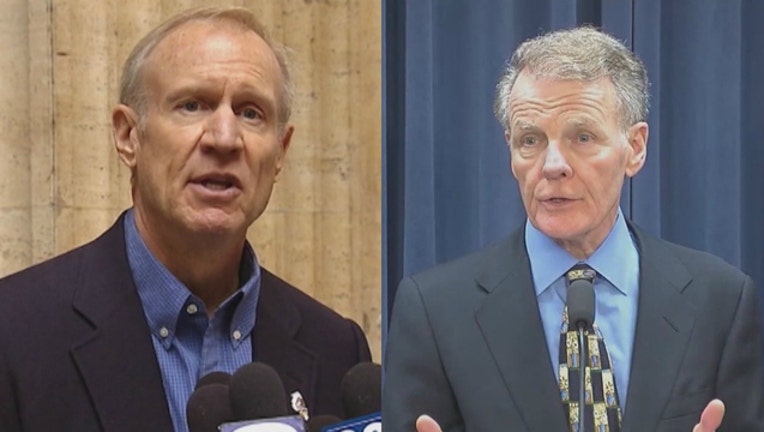Illinois end-of-year budget deficit to top $6B

SPRINGFIELD, Ill. (AP) - The state's budget deficit will top $6.2 billion for the fiscal year through June 30, forecasters for the Illinois General Assembly estimated Wednesday.
In a review requested by Rep. David McSweeney, the Commission on Government Forecasting and Accountability said if Illinois goes a third full year without a budget agreement, the state's leviathan of past-due bills will hit $22.7 billion. It sat at $14.9 billion Wednesday.
McSweeney, who said, "Illinois is imploding," released the results to The Associated Press.
"The governor needs to call the General Assembly into special session every day until we pass a balanced budget without a tax increase," the conservative, Barrington Hills Republican said. "Let's stop the madness and pass a balanced budget now."
A spokeswoman for GOP Gov. Bruce Rauner says he might do that unless there is swift legislative action.
The deficit is more than the state spent on all human services in the current budget year, according to numbers in the analysis. It's more than the checks Springfield wrote for higher education, public safety and government services combined.
Another no-budget year would leave a June 2018 deficit of $7.7 billion, the commission estimated. The year-end shortfall at the same time a year ago was $3.8 billion.
The Democratic-controlled Legislature adjourned its spring session a week ago, the third consecutive spring session that failed to seal an annual fiscal deal with Rauner. It is the longest any state has gone without a budget since at least the Great Depression.
Rauner was dissatisfied with the compromises Senate Democrats offered him on his long-sought changes such as a property tax freeze. So the House skipped a budget vote and announced summertime public hearings. Budget point-man Rep. Greg Harris, a Chicago Democrat, announced the first for Thursday in Chicago.
Rauner spokeswoman Eleni Demertzis said Rauner wants lawmakers back in the capital to adopt a balanced budget with business-friendly "structural" changes and property tax relief for homeowners.
"If they fail to do so, he will consider calling them back," Demertzis said.
Government has not shut down. Income and sales tax receipts continue to come in and basic functions have continued, prompted by federal court orders and periodic legislative appropriations. But continued "auto-pilot" spending would increase by $1.6 billion, or 4 percent, in the coming year while already insufficient revenue jumps only $188 million, the commission review shows.
The biggest driver is the required payment toward state employee pensions, which is expected to jump 14 percent to $7.9 billion in the year that begins July 1.
Shortly after lawmakers left town, the Prairie State's credit worthiness was downgraded by two ratings agencies to one notch above "junk" status. S&P Global Ratings noted "unrelenting political brinksmanship" while Moody's Investors Service blamed "fruitless negotiations and partisan wrangling."
___
Contact Political Writer John O'Connor at https://twitter.com/apoconnor . His work can be found at https://apnews.com/search/john%20o'connor

